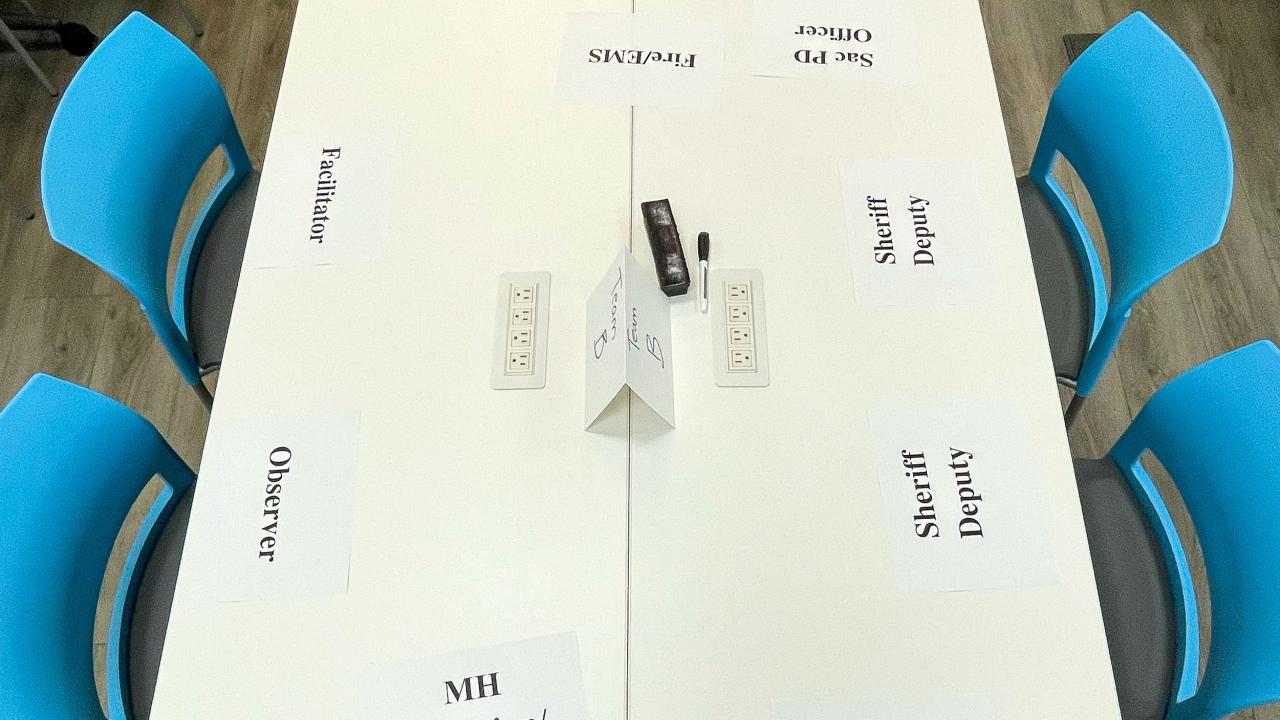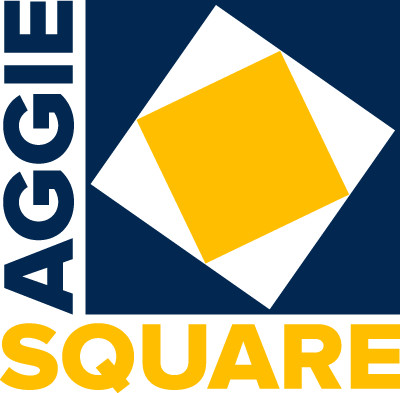
A Very Serious Game
Few moments are more intense than when a first responder arrives on the scene of a crisis. Few first responses are more fraught than those involving behavioral health: crises that feature issues of mental health, substance use, or overdose.
This June at the Aggie Square Launch Space on Stockton Blvd in Sacramento, UC Davis Sociology Lecturer Elizabeth Siggins brought together the full range of working professionals who deal with crisis response to develop new and better ways to do their work by playing a very serious tabletop game.
Aggie Square is designed to foster exactly this kind of creative approach, bringing together university and community to improve life in Northern California (and around the world). More public-facing scholarship and community engagement is a key part of what this project is bringing to the UC Davis Sacramento campus. With accessible spaces both small and large—and a dedicated parking lot footsteps away—UC Davis experts will be able to collaborate on unique opportunities for diverse groups from across the region to solve problems.
With a seed grant from the California Health Care Foundation, Siggins put together a tabletop exercise that prompted dispatchers, community response specialists, police officers who walk a beat, and mobile crisis clinicians to game out the kind of 911 calls that challenge existing best practices. Their bosses participated too: local Fire Department Captains, City Department Directors, Police Sergeants, and Behavioral Health Executives were sitting at the same tables, confronted with the same scenarios as the front-line professionals who report to them. For everyone involved, this was a unique way to tackle a shared problem.
Scenarios tackled included: A call comes into 911. The caller is working at a coffee shop. She reports that a man in his 30s who appears to be unhoused walked into the café shouting to himself. Then he grabbed a customer’s backpack and locked himself inside the restroom.
Is this a behavioral health crisis? What should be the response?
Every day, professionals have to ask these questions under high pressure conditions. They rarely get a chance to sit down and talk with counterparts in other responder organizations—from the leaders of those organizations who set policy to the frontline experts on the street.
The genius of Siggins’s tabletop game is not only that it made possible that conversation, but also that it kept the pressure on. Gamers at each table only had a short amount of time to meet their fellow participants and dive in. After they played through how to deal with one scenario, every table reported out. And then they dived into the next challenge.
Within the university, we call this kind of highly collaborative exercise a flipped classroom. No lecturer on the stage. Instead, exercises developed in consultation with the professionals who were coming together packed enough controversy and surprise to keep everyone focused and interested on learning how to do better.
What’s next? After a half day of serious play, Siggins will reassemble the chiefs, dispatchers, and community responders for an online debriefing session. If all agree that the exercise was productive, then the question becomes how to make more of these games happen.
When its doors open in early 2025, Aggie Square will be there, ready to help faculty like Siggins get together with professionals and community members to keep working and playing, taking on the hard questions that matter to our region.
